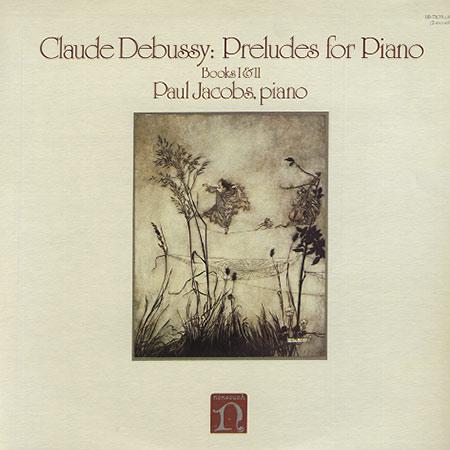Re: What are you listening two?
Posted: Wed Jul 30, 2014 9:17 pm
Listening this evening to a recent purchase, a complete recording of the Beethoven violin sonatas by Canadians Nancy Dahn (violin) and Timothy Steeves (piano) who perform together under the collective moniker of Duo Concertante. Listened to blind, the experience is a salutory lesson of how we are regularly seduced by recognisable names and starry performers in favour of equally deserving but far less well-known musicians. My current benchmarks for the Beethoven violin sonatas are (in no particular order) Gideon Kremer and Martha Argerich on DG, Isabelle Faust and Alexander Melnikov on HM, and Leonidas Kavakos and Enrico Pace on Decca. The performances by Duo Concertante are not as wildly impassioned as those by Kremer/Argerich or Faust/Melnikov but recall to my mind the more understated elegance, delicacy and reserve of the Kavakos/Pace set. There is a real sense of even-handed conversational interplay between Dahn and Steeves and the pleasure of this set is in the convivial sense of the musicians listening to and responding to each other simply as a means of mediating the breadth and depth of the gamut of human emotion that Beethoven embedded in the music to the listener.
The litmus test for any successful performance of these works is, of course, the astonishing Kreutzer Sonata, one of the finest pieces of music ever written and certainly the most overwhelmingly emotional chamber music that I've ever heard. One of those rare works of art that leave you breathless and teary-eyed no matter how many times you hear it. Familiarity does not dull the emotional impact of this work, which, I believe, would have guaranteed Beethoven immortality had he not written anything else. Duo Concertante rise brilliantly to its innumerable challenges. Crucially, they are not simply undaunted by the virtuosic requirements on the part of the performer, they are undistracted and unperturbed by any notions of virtuosity and are much more interested in expressing the very raw emotions inherent in this music in the most natural way. This does not mean that we hear a rose-tinted, overly dramatic, overly mawkish rendering of the piece, nor is it an technically correct, overly respectful, and ossified rendition, but rather we hear two performers keenly alert to the music's technical difficulties, yet alive to the spiritual profundities imbued within. I believe it is a "great" performance of this most extraordinary of masterpieces simply because, like the versions listed above, it makes my heart pound and my palms sweat and my eyes glisten and it creates the illusion of suspended time in which I find myself wrenched outside of myself lost in this impossibly rich and endlessly rewarding music, the residual magic of which lies in its creative enlargement of the lives we live each time we listen in mute astonishment.

The litmus test for any successful performance of these works is, of course, the astonishing Kreutzer Sonata, one of the finest pieces of music ever written and certainly the most overwhelmingly emotional chamber music that I've ever heard. One of those rare works of art that leave you breathless and teary-eyed no matter how many times you hear it. Familiarity does not dull the emotional impact of this work, which, I believe, would have guaranteed Beethoven immortality had he not written anything else. Duo Concertante rise brilliantly to its innumerable challenges. Crucially, they are not simply undaunted by the virtuosic requirements on the part of the performer, they are undistracted and unperturbed by any notions of virtuosity and are much more interested in expressing the very raw emotions inherent in this music in the most natural way. This does not mean that we hear a rose-tinted, overly dramatic, overly mawkish rendering of the piece, nor is it an technically correct, overly respectful, and ossified rendition, but rather we hear two performers keenly alert to the music's technical difficulties, yet alive to the spiritual profundities imbued within. I believe it is a "great" performance of this most extraordinary of masterpieces simply because, like the versions listed above, it makes my heart pound and my palms sweat and my eyes glisten and it creates the illusion of suspended time in which I find myself wrenched outside of myself lost in this impossibly rich and endlessly rewarding music, the residual magic of which lies in its creative enlargement of the lives we live each time we listen in mute astonishment.

